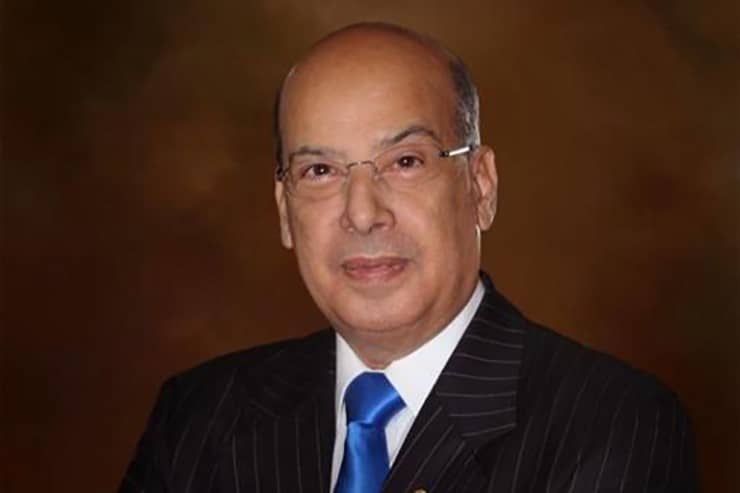
By Sir Ronald Sanders
Four days after the Caribbean Community (CARICOM) Heads of Government reaffirmed the Caribbean as a Zone of Peace, Prime Minister Kamla Persad‑Bissessar of Trinidad and Tobago startled the region with a public statement that CARICOM should “get together” and take some of the “illegal Venezuelans” sheltering in her country, and that the Community should press Caracas to accept two hundred Venezuelans now in Trinidad’s prisons. She went further, saying that if any CARICOM state withdrew support for Trinidad’s foreign-policy ambitions because of her stance, “she did not care.”
The remark appeared to be an exasperated—and sarcastic—response to the joint statement of her CARICOM colleagues: a perhaps intemperate reminder that Trinidad and Tobago bears one of the heaviest per-capita burdens in CARICOM of Venezuelan migration and the trans-Caribbean narcotics trade. It was a sharp political riposte that unsettled the harmony of CARICOM’s communiqué of October 18, which sought to reaffirm the Caribbean as a Zone of Peace amid unilateral U.S. military action against alleged narco-traffickers off the coasts of Venezuela and Colombia.
In the Caribbean, small states value regional unity, yet face national pressures that make collaboration with other powers tempting. Many have done so from time to time. Therefore, while the position and tone of Prime Minister Persad-Bissessar’s statement are troubling, every government in the region knows the regular calculus between adhering to regional positions and putting national interest first.

But understanding cannot mean silence when the boundary line is crossed. If the Caribbean’s response to migration, crime, and security becomes a chorus of individual voices – each pitched to its own domestic concerns – then the collective shield that should define CARICOM will splinter. Disunity weakens the strength of the regional collective. No CARICOM state benefits, for none has the capacity to cope in a world where the might of the powerful is continuously imposed.
CARICOM’s survival has always rested on the discipline of acting within international law, never outside it. Cooperation with larger democracies has served the region well when kept squarely within the framework of law. When cooperation with larger partners begins to place their priorities over the region’s, partnership turns into proxy, and sovereignty erodes.
The problem is not that Trinidad and Tobago drew attention to its burden; it is that the regional discourse slipped from coordination to confrontation. The duty to readmit nationals belongs to the state of origin – in this case, Venezuela. Burden-sharing among CARICOM members is a political choice, not a legal one, and cannot be imposed by rhetoric. To conflate the two is to replace law with leverage.
None of this denies the need for action. Crime, trafficking, and uncontrolled migration are real threats. But security built outside of law inevitably turns inward; lawlessness cannot be disguised as necessity. The October 18 CARICOM statement warned against “security build-ups in the region” that could disturb peace or sovereignty. It was a caution, not a command. The message was that CARICOM states can cooperate with larger partners -indeed they must – but under clear agreements, transparent mandates, and regional consent. That is how a Zone of Peace becomes more than a phrase on paper.

Properly understood, the Zone of Peace limits the reach of power, not the reach of justice. It forbids aggression between states, not the pursuit of traffickers and lawbreakers. Yes, any external lunge at regime change in Venezuela would ripple across the region – law and prudence both counsel restraint. But restraint runs in two directions: Venezuela must also meet its obligations – consular access, travel documents, and the readmission of its own nationals – while CARICOM holds its line on legality and consultation. CARICOM’s partnerships with all bigger countries endure best when they are squarely within law, and CARICOM unity holds when it tolerates legitimate national concerns.
CARICOM’s cohesion has always contained diversity. Geography, aid, and commerce dictate that some members will align more closely with some external powers than others. That diversity is not betrayal; it is reality. But collective sovereignty – our ability to act as one where it matters – requires tolerance of those national variations without permitting them to unravel the whole.
As I wrote last week: “Governments will have to understand and tolerate why some amongst them, in their national interest, have to be more accommodating of larger powers. They will also have to accept that ‘collective sovereignty’ cannot be exercised if it invites individual punishment.” Trinidad and Tobago’s position embodies that tension. The test is whether the Community can absorb it without tearing itself apart. But a necessary condition is that leaders must keep the entrancement of local control at bay; it is unsustainable for small states.
Leaders declared CARICOM a “Community of Sovereign States”; too often, emphasis has fallen on Sovereignty at the expense of Community, accentuating individual weaknesses and deepening external dependence. However, if CARICOM truly wants to keep the Caribbean a Zone of Peace – and it should, because its economies and the well-being of its people depend on it – its members must now commit, more than ever, to regular consultation and to regional positions that account for each other’s specific circumstances as well as their regional commitments. CARICOM’s strength lies in the willingness of its member states to speak in concert when it counts—and to keep that concert squarely within the law.
If CARICOM leaders allow the region’s security debates to become contests of loyalty – to any external country – they will find that the Zone of Peace has been outsourced, and the rent is payable in loss of sovereignty.
CARICOM states stand at a crossroads familiar to every small state in a power-driven world. They must cooperate with others in the international community – but within the framework first of the CARICOM Treaty and the UN Charter, and thereafter in the context of the multilateral agreements to which they are signatories, including the Law of the Sea Convention.
Accommodation may be necessary; abdication is not. CARICOM can cooperate with others without surrendering agency. And that is what, collectively, CARICOM states must strive to do.
(The author is the Ambassador of Antigua and Barbuda to the United States and the OAS, and Dean of the OAS Ambassadors accredited to the OAS. Responses and previous commentaries: www.sirronaldsanders.com)
Advertise with the mоѕt vіѕіtеd nеwѕ ѕіtе іn Antigua!
We offer fully customizable and flexible digital marketing packages.
Contact us at [email protected]














